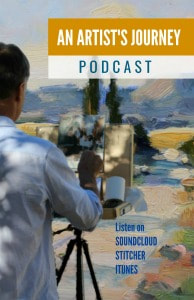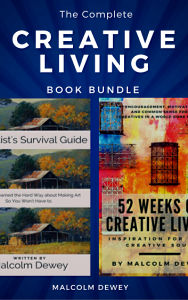|
by Malcolm Dewey
What can we learn from great leaders of the past? In these cynical times we can be forgiven for looking at all leaders with suspicion. But there is the common thread of humanity that binds us. One of those threads is a love and appreciation for art. One of those famous leaders who also loved painting was, of course, Winston Churchill.
In this episode of Loosen Up Your Painting Podcast we take a look into Churchill's painting philosophy in his book Painting as a Pastime. Find out more about Winston Churchill's painting tips, experiences with French Impressionism and his views on oil paints versus watercolors.
Watch the Podcast and Painting
Transcript:
Introduction
Welcome to Loosen Up Your Painting Podcast, the podcast for creatives making their art and making a difference to their lives and the world. We discuss how to improve your art, your lifestyle, and grow your creative business. I'm your host, Malcolm Dewey from malcolmdeweyfineart.com and let's begin. Artist’s Live Channel Artists, would you like to join Malcolm each month for a live painting demonstration and tutorial? You can also try out the painting for yourself and receive a critique of your work. Plus, watch the recordings of all the lessons in HD whenever you want to, then share your work and chat to other participating artists in the community. All of this is possible when you join Malcolm's Artist's Live Channel. It is an investment that will pay you back in painting pleasure many times over. Find out more and preview the Artist's Live channel. Then join in the fun details on malcolmdewefineart.com. Painting as a Pastime: Winston Churchill’s Book It's great to be talking to you again, and I'm going to be following up on something I started a while back in an episode about painting in times of great stress and dealing with issues in the world, and our painting can help you. I'm going to take this further by referring to one of the great leaders of the 20th century who found so much solace and enjoyment in painting. Talk of none other than Sir Winston Churchill himself. He wrote a book about the topic of painting, and he was a great painter in his own right. But painting forms such a bigger part of Winston Churchill's life. So Winston Churchill wrote a book called Painting as a Pastime and I am fortunate enough to have a copy of this book, a reprint from 1965. Quite an old copy, I must admit. But we found it recently in a thrift store, and my wife kindly gave it to me as a gift. And I read the book many years ago as an ebook. Managed to find one online, but nothing better than having the actual book in your hands. And as I said, it's called Painting as a Pastime, and it was written by Winston Churchill as a book of gratitude about his discovery of painting and what it did for him. A Cure for Your Worries But it's also about endorsing painting as a pastime, but also tries to encourage us to consider painting. And then he motivates his argument. And what I'm going to do is I'm going to refer to some of the parts of the book and discuss that, because it really is very illuminating, reading the words of the great leader himself and how humble he was to write a book like this and share his feelings about painting. So on the first page of the book, Winston Churchill writes, Many remedies are suggested for the avoidance of worry and mental overstrain by persons who, over prolonged periods, have to bear exceptional responsibilities and discharge duties upon a very large scale. Some advise exercise and others repose, and some counsel travel and others retreat. Now, instantiation is somebody who should surely be familiar with the stresses and strains of discharging duties on a large scale. It's important to keep in mind that Winston Churchill, even before World War II, resorted to painting to try and salvage his mental state and the tremendous stress he was going through. Because he had basically been put out to pasture and as a result of some of his actions during World War One and finding himself in a political wilderness, he was going through tremendous personal strain and trying to cope with that. Start Painting at Any Age I do believe that Winston Churchill was well aware that he was a man of destiny and that it looked like whatever destiny was waiting for him had been squandered by a few mistakes that he had made. So finding himself at a loose end and thinking that his career was over, he discovered painting at the age of about 40 years, and he talks a bit about that in his book as well. He says the element which is constant and common for all of us is that of change. Change is the master key, and he goes on to suggest that to find freedom from all the stresses of life, you need to do something that offers a complete change to what has been giving you all that stress and trouble. He says it is no use saying to the tired mental muscles, if one may coin such an expression, I will give you a good rest. I will go for a long walk or I will lie down and think of nothing. The mind keeps busy just the same. If it has been weighing and measuring, it goes on weighing and measuring. If it has been worrying, it goes on worrying. Self Help Before it Became Trendy So Winston Churchill is suggesting that a complete change is the only solution to easing your worries. He says that the mind catches hold of something and will not let it go. It is useless to argue with the mind in this condition. It's quite interesting because a lot of this has been written about in recent times by self help authors, and this was already on Churchill's mind way back then, in the early 20th century. The mind is a great servant, but a terrible master. This has been written about several times. If you don't use the mind for your positive well being, it's going to fill up all your spare time with your worries and concerns. And if you think about those things, your mind will simply keep replaying them because it thinks that's what you want to think about. So Churchill goes on to say the cultivation of a hobby and new forms of interest is therefore a policy of first importance. He says that the growth of alternative mental interest is a long process. The seeds must be carefully chosen, they must fall on good ground, they must be sedulously tended if the vivifying fruits are to be at hand when needed. The Garden of the Mind Churchill's turn of phrase is, of course, something beyond most of us and is famous for being a wordsmith, but I find it also so illuminating. I suppose that he refers to the mind, or likens the mind, to a garden that must be tended and looked after, and only good thoughts must be sown like seeds into the mind to create worthwhile thoughts and a worthwhile state of being. If we fill our minds with toxic things, thoughts and activities and influences, then we're going to have those toxic effects as part of our lives. Churchill goes on to say that broadly speaking, human beings may be divided into three classes: those who are toiled to death, those who are worried to death, and those who are bored to death. It's so true, isn't it, even back then, if only we could foresee the way the world was going and how we would be shackled to the desk or indebted and forced to work and to sustain our lifestyles that have become so stressful in this modern digital age. I'm not sure Churchill could have even envisaged such a hellish life as many of us have to lead today. Churchill goes on to suggest that the most common form of diversion is reading. But while he is a big fan of books and he wrote many books himself, he does not offer reading as a sufficient means of change, one that's going to sustain you and keep you satisfied for the rest of your life. Reading is Not the Cure He says that reading and book love in all of their forms suffer from one serious defect. They are too nearly achieved to the ordinary daily round of the brain worker to give that element of change and contrast essential to real life. To restore psychic equilibrium, we should call in to use those parts of the mind which direct both eye and hand. Many men have found great advantage in practising a handicraft for pleasure, and then Churchill goes on to suggest a few types of handicrafts, I suppose, more relevant to his times, things like joinery and chemistry and bricklaying. But he says, first of all and easiest to procure are sketching and painting in all their forms. I could consider myself very lucky that late in life I've been able to develop this new taste and pastime. Painting came to my rescue in a most trying time, and I shall venture in the pages that follow to express the gratitude I feel. Why Painting is the Answer Painting is a companion with whom one may hope to walk a great part of life's journey. Isn't that so true? And very much falls into my own philosophy as well. I am so grateful for painting because it is something I recognise as an activity and a challenge that I'll be able to carry out for as long as mind and body offer me that opportunity. And hopefully that's going to be for the rest of my days. Churchill says that painting is a friend who makes no undue demands, excites to no exhausting pursuits, keeps faithful pace, even with feeble steps, and holds a canvas as a screen between us and the envious eyes of time or the surly advance of decrepitude. Happy are the painters, for they shall not be lonely. Light and colour, peace and hope will keep them company to the end, or almost to the end of the day. Isn't that a fabulous passage? And so true how we can find comfort in painting? Because we all know that time marches on and nothing remains the same. But our commitment to creating and painting is something that can sustain us almost to the end of our days and keep us in a worthwhile distraction that produces something beautiful, perhaps something longlasting, but also keeps both mind and hand busy and happy. The Ageless and Humble Artist For that time we are fortunate enough to be able to paint. He goes on to say, There is no subject on which I feel more humble or yet at the same time more natural. I do not presume to explain how to paint, but only how to get enjoyment. Do not turn the superior eye of critical passivity upon these efforts. Buy a paint box and have a try. I think if Churchill went into the business of selling art materials, he would have done pretty well. He also says, It doesn't matter if you wait, it doesn't matter when you start. It can be later in life like he did, or early it's totally forgiving whatever stage you may be. It's never too late, he says, if you are inclined late in life, though, it be to reconnoiter a foreign sphere of limitless extent, then be persuaded that the first quality that is needed is audacity. There really is no time for the deliberate approach. So Churchill was saying there that when you're starting late in life with painting. He started when he was about 40 years of age. Many of you probably started after retirement. Maybe you're in your sixties or even later, and he says, that is perfectly fine, but don't waste your time trying to be too deliberate about it. Be Audacious! Jump right in and use an attitude of audacity, he says. We must not be too ambitious. We cannot aspire to masterpieces. We may content ourselves with a joyride in a paint box, and for this audacity is the only ticket. So don't weigh yourself down with all sorts of expectations to produce masterpieces, he says simply, dive in and have fun, and you never know where it may take you. It's quite amusing when Churchill goes on to describe his first attempt at painting, and he was sitting down in front of his canvas and making a decision to begin, and his first attempts with paintbrush was to paint the sky in his landscape painting. And he says, yeah, so very gingerly I mixed a little blue paint on the palette with a very small brush, and then, with infinite precaution, made a Mark about as big as a bean upon the affronted snow white shield. It was a challenge, a deliberate challenge, but so subdued, so halting. Cowering Canvasses Then he describes the arrival of a painting friend. At that moment, the loud approaching sound of a motor car was heard in the drive from this chariot. They stepped swiftly and lightly, none other than the gifted wife of Sir John Lavery painting. But what are you hesitating about? Let me have a brush. The big one splashes into the turpentine, wallop into the blue, and the white, frantic flourish on the palate clean no longer, and then several large, fierce strokes and slashes of blue on the absolutely cowering canvas. Anyone could see that it could not hit back! The canvas grinned in helplessness. Before me, the spell was broken. The sickly inhibitions rolled away. I seized the largest brush and fell upon my victim with berserk Fury. I've never felt any awe of a canvas, since I can certainly endorse that approach, and it's one that I'm always trying to mention to my art students as well. Get out the biggest brush, the one that makes you feel even uncomfortable as you contemplate using it and get stuck in with lots of paint and make big brush marks. Don't be intimidated by your canvas. Churchill goes on to talk about oil paints and why he loves them so much as a medium. A quote from his bookier he says, I write no word in disparagement of watercolours, but there really is nothing like oils. You have a medium at your disposal which offers real power if you could only find out how to use it. Oils and Watercolors Moreover, it is easier to get a certain distance along the road by its means than by watercolour. First of all, you can correct mistakes much more easily. One sweep of the palette knife lifts the blood and tears of a morning from the canvas and enables a fresh start to be made. Indeed, the canvas is all the better for past impressions, and he also goes on to say that you can approach the canvas from any direction, work from the top, up, from the middle, or anywhere else, whatever direction you want, whereas the water colours may work from top to bottom, from light to dark, and so on. But with oils you can move things about, scrape things off, and start wherever you want. He goes on to say, lastly, the pigment itself is such nice stuff to handle. You can bold it on layer after layer if you like. You can keep on experimenting. But overall, Churchill is saying how wonderful it is to paint and how much fun. He says the colours are lovely to look at and delicious to squeeze out. Matching them, however crudely, with what you see is fascinating and absolutely absorbing. Painting Tips Try it if you have not done so before you die. It's funny, because then Churchill goes on to give some painting advice and some suggestions of the approach you could take to painting, and it's all perfectly correct. He also goes on to talk about how being a painter changes the way you look at the world. I've always said this myself, that once you start to see like an artist, everything else you observe is looked at through the eyes of an artist, and suddenly you see beauty or you see compositions where nobody else really noticed anything. Churchill says, I think this heightened sense of observation of nature is one of the chief delights that have come to me through trying to paint. If you do observe accurately and with refinement, and if you do record what you have seen with tolerable correspondence, the result follows on the canvas with startling obedience. Churchill also talks about simplifying what you have seen. He says, not only is your observation of nature sensibly improved and developed, but you look at the masterpieces of art with an analysing and a comprehending eye. The whole world is open with all its treasures. Beauty in the Artist’s Eye The simplest objects have their beauty. Every garden presents innumerable, fascinating problems. Every land, every Parish has its own tale to tell. Isn't it wonderful that painting opens up all of these opportunities to see the world in a much better way and as something positive, even what is mundane to most people will be looked at with an artist's eye and the potential for creating something different or bringing out the beauty in the simplest of things. He goes on to discuss how you should keep a reserve when you are painting. Always keep something back so that you can finish off the painting. Don't throw everything in at once, he says. In painting, the reserves consist in proportion or relation, and it is here that the art of the painter marches along the road which is traversed by all the greatest harmonies in thought. At one side of the palette there is white and at the other black, and neither is ever used neat. Between these two rigid limits, all the action must lie, and that is exactly correct. You have to see nature as in all those elements in between the darkest darks and the lightest lights. Values and Relationships And if you've ever worked with a value scale, you'll know just exactly what he's talking about. We don't put pure white or pure black in mixing colours in the landscape, that is, all the variations, all the greys, all the desaturated colours in between those two extremes. Churchill says that it is wonderful to see how easily and surely the true artist is able to produce every effect of light and shade, of Sunshine and shadow, of distance or nearness simply by expressing just the relations between the different planes and surfaces with which he is dealing. This really does sum up exactly what we are trying to do with the landscape, doesn't it? Churchill goes on later in his book to try and encourage everyone to try their hand at painting. He says, Learn enough of the language in your prime to open this new literature to your age. Plant a garden in which you can sit when digging days or done. It may only be a small garden, but you will see it grow year by year, with Bloom and ripen year by year. It will be better cultivated. So, of course, once again he's using the garden as a metaphor to take up painting and working at it and improving steadily throughout the rest of your life. The French Modern School of Art It's nice to also read how Churchill loved bright colours. There was nothing restrained about the emotions Churchill had, and he is well known for being a very emotional person with deep feelings. He says in his book, I must say I like bright colours. I agree with Ruskin in his denunciation of that school of painting who eats slate, pencil and chalk and assure everybody that they are nicer and purer than strawberries and plums. I cannot pretend to feel impartial about the colours. I rejoiced with the brilliant ones and I'm genuinely sorry for the poor Browns. What I also find very interesting in Churchill's book is that he speaks about his visit to France and he's encountering the post Impressionist period there and what he refers to as the modern school of French painting. And we have to remember that this was just after the Impressionist period had ended. Monet had passed away a few years before, and even Van Gogh. Remember Monet lived into the First World War period, so he was really still a contemporary with Churchill at one point. So Churchill goes on to talk about his visit to France and he says, I fell in with one or two painters who revelled in the methods of the modern French school. The Post Impressionsit Style These were disciples of Cezanne. They view nature as a mass of shimmering light in which forms and surfaces are comparatively unimportant, indeed hardly visible, but which gleams and glows with beautiful harmonies and contrasts of colour. It was certainly of great interest to me to come suddenly in contact with this entirely different way of looking at things. I had hitherto painted the Sea flat with long, smooth strokes of mixed pigment in which the tints varied only by gradation. Now I must try to represent it by innumerable small, separate, losing shaped points and patches of colour, often pure colour, so that it looked more like a tessellated pavement than a marine picture. It sounds curious all the same. Do not be in a hurry to reject the method. Go back a few yards and survey the result. Each of these little points of colour is now playing his part in the general effect. Individually invisible, he sets up a strong radiation of which the eye is conscious without detecting the cause. Isn't Winston Churchill really talking about Impressionism and how colour was used to create optical mixing. As you stood further back and looked at the painting and got that shimmering effect of light so important for trying to capture that light of the south of France, for instance, he says: Surely we owe a debt to those who have so wonderfully vivified, brightened and illuminated modern landscape painting? Have not Manet and Monet, Cezanne and Matisse rendered to painting something of the same service which Keats and Shelley gave to poetry after the solemn and ceremonious literary perfections of the 18th century? They have brought back to the pictorial art a new draught of Joy de Vivre. And I have to agree 100% there. I think that is why so many of us love the Impressionist painters and what they did for art and brought so much light and colour and emotion back into painting, all those things that had become so stifled by the traditions of the old Masters. So Winston Churchill became a convert to the modern French school of Impressionism, and he says that all nature is equally interesting and equally charged with beauty. The paintings of the Impressionists focused on the everyday scenes and those everyday parts of life, Churchill says. Now I often amuse myself when I'm looking at a wall or a flat surface of any kind, by trying to distinguish all the different colours and tints which can be discerned upon it. And considering whether these arise from reflections or from natural hue, he says, you would be astonished the first time you try this to see how many and what beautiful colours there are even in the most common place of objects. Find Beauty Everywhere And this is so very true. There is something that the artist can bring out in almost every scene. Another interesting observation in Churchill's book is how he talks about developing your memory and skills of observation. And he says, there's no better exercise for the would-be artists than to study and devour a picture and then without looking at it again to attempt the next day to reproduce it. And this, of course, was before the times of photography or modern photography where you could get photos printed very easily, or of course, in our modern digital time. Sure, there were cameras and photography available in early nineteen hundreds, but on the sense of a modern scale where you could just pull up a photo and work from that that wasn't available, you had to be much more observant and take note of the fleeting light and colours and shadows and try and commit as much of that to memory. Towards the end of his book, Churchill sums up when he says, Painting is complete as a distraction. I know of nothing which, without exhausting the body more entirely, absorbs the mind. Whatever the worries of the hour or the threats of the future, once the picture has begun to flow along, there is no room for them in the mental screen. They pass out into shadow and darkness. All one's mental light, such as it is, becomes concentrated on the task. Time stands respectfully aside, and it is only after many hesitations that luncheon knocks roughly at the door and time stands still and all concerns are put to the side when your mind is focused on painting. Get More Out of Travel And that, after all, is the great attraction that I've been talking about recently in these podcasts: how we can spend our time and have so much fun and freedom from worry and stress by taking up painting. He finally says that painting is also a great spur to travel, and he compares the artist to the vein tourist. He says instead of being a jaded tourist, the artist enjoys the calm enjoyment of the philosopher intensified by an enthralling sense of action and endeavour. So, he says, even if you are only a poor painter, you can feel the influence of the scene guarding your brush, selecting the tubes you squeeze out onto the palette. Even if you cannot portray it as you see it, you feel it, you know it, and you admire it forever. And that is Winston Churchill's Painting as a Pastime, extracts from his book where he speaks about everything you and I will agree on. Now is the Time to Start I think painting is that wonderful time and open to all of us who take it up. So if you're hesitating or inhabited or feeling frustrated with your painting, take heed of Churchill's words and dive back in with audacity commitment and joy de vivre and you will feel the cares and worries of the world fall away, even just for a few hours. There's plenty of time to get back into the real world and face the chores and concerns of daily life, but you'll always be able to look forward to getting back to your paints and your easel and enjoying a few precious hours of solitude and calm. So I couldn't say it better myself. So if you've been standing on the sidelines or thinking about stopping painting or haven't painted for a long time, go and get yourself a paint box, some paints, brushes and an easel and a canvas or two and have a go jump right in and keep swimming. Well, that's it for this podcast and I hope there's plenty in there to make you think about your painting and get back into renewed interest. Don't forget, I've got plenty of resources available on my website www.malcolmdeweyfineart.com, from a couple of free painting courses to many other articles and videos that will help you. Plus on my YouTube channel, there are literally hundreds of painting videos, all designed to help you from beginners to intermediates. So have a look at Malcolm Dewey channel on YouTube and enjoy some of the videos there. And don't forget to subscribe, of course, so you don't miss the next video I upload right until next time, enjoy your painting, keep it up and we'll talk again soon. Pin for later: |
AuthorMalcolm Dewey: Artist. Country: South Africa Archives
June 2024
Categories
All
FREE
|
|

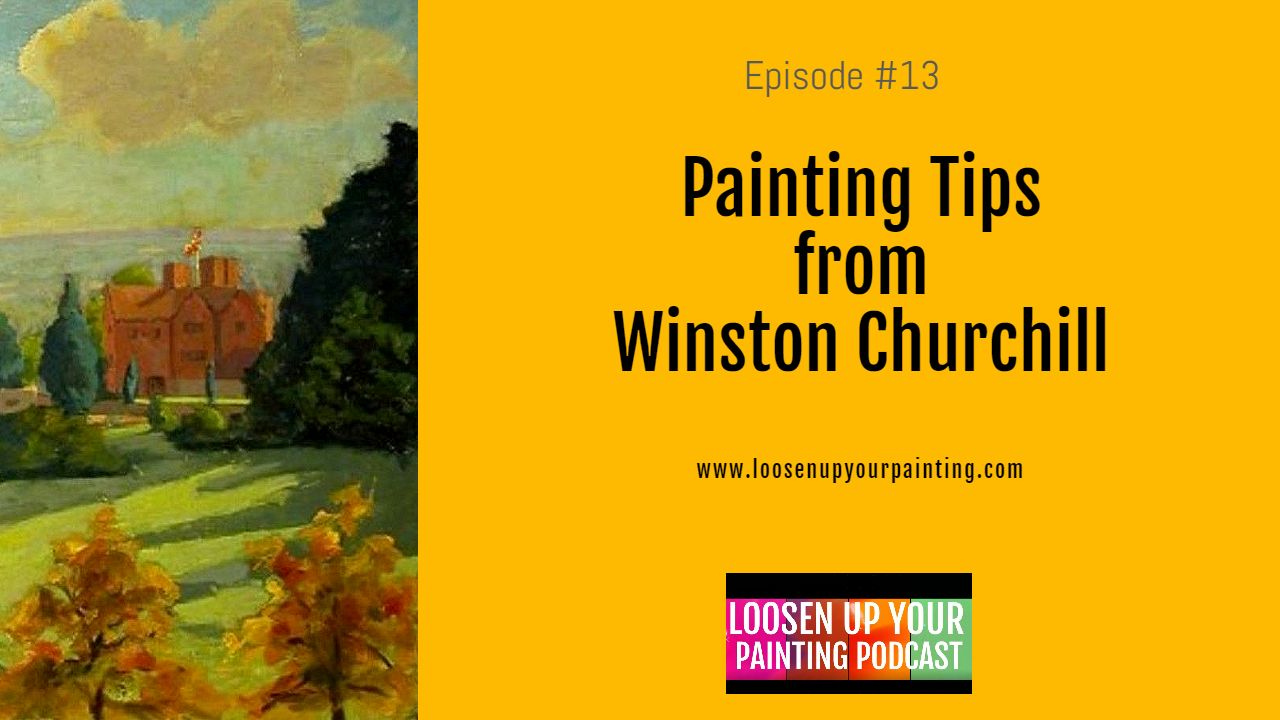
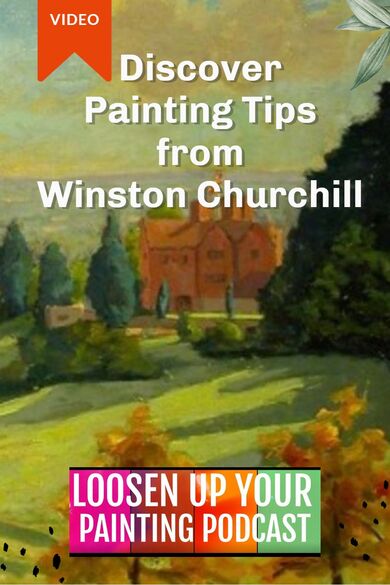
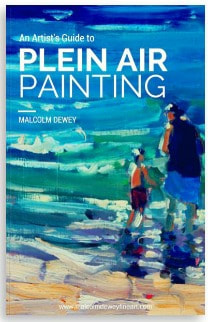
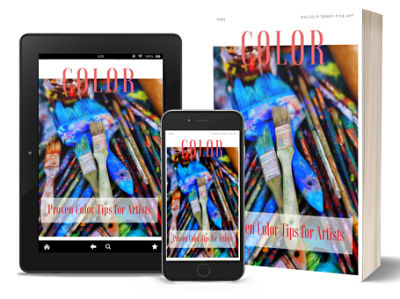
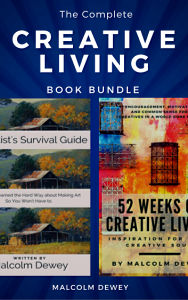
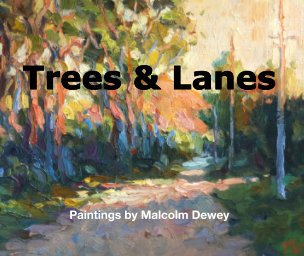



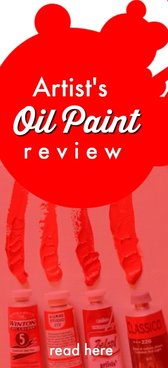

 RSS Feed
RSS Feed
